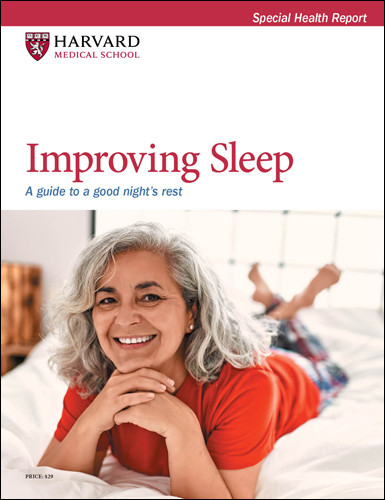Irregular sleep patterns linked to atherosclerosis
News briefs
- Reviewed by Anthony L. Komaroff, MD, Editor in Chief, Harvard Health Letter; Editorial Advisory Board Member, Harvard Health Publishing

Go to sleep at 11 p.m. one night, and 2 a.m. the next? You may want to rethink that pattern. A study published online Feb. 15, 2023, by the Journal of the American Heart Association suggests that sleep irregularity — night-to-night variations in sleep duration and timing (when you sleep) — are linked to atherosclerosis (plaque buildup in the arteries). Researchers from Harvard and other institutions asked a diverse group of more than 2,000 people (average age 69), without any known atherosclerosis, to wear sleep trackers and keep sleep diaries for one week. Participants also underwent assessments of artery plaque and one night of sleep testing. Scientists found that people with the most variation in sleep duration (more than two hours a night in a week) and sleep timing (more than 90 minutes in a week) were more likely to have atherosclerosis, compared with people whose sleep was the most consistent. This is an observational study, and we can't make definitive conclusions about cause and effect. But we already know that other sleep problems, such as interrupted sleep and poor sleep quality, are associated with cardiovascular disease. So the connection is plausible.
Image: © Ridofranz/Getty Images
About the Author

Heidi Godman, Executive Editor, Harvard Health Letter
About the Reviewer

Anthony L. Komaroff, MD, Editor in Chief, Harvard Health Letter; Editorial Advisory Board Member, Harvard Health Publishing
Disclaimer:
As a service to our readers, Harvard Health Publishing provides access to our library of archived content. Please note the date of last review or update on all articles.
No content on this site, regardless of date, should ever be used as a substitute for direct medical advice from your doctor or other qualified clinician.
















